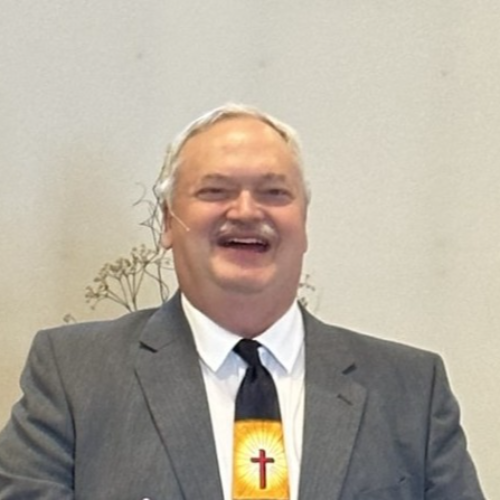-
The Ripples Of Sin
Contributed by Kevin Barron on Jan 28, 2019 (message contributor)
Summary: INTRO. Infidelity, adultery is such a commonplace thing any more that we pay little attention to it.
INTRO. Infidelity, adultery is such a commonplace thing any more that we pay little attention to it. A week or two ago, we were watching a video and Carol remarked on how there was so much adultery in it - everyone seemed to have a lover. Marriage was not always treated so casually. Henry Ford, founder of Ford Motor Company, is a good example.
When he and his wife celebrated their golden wedding anniversary, a reporter asked them, "To what do you attribute your 50 years of successful life?"
"The formula," said Ford, "is the same formula I have always used in making cars - just stick to one model" (Donovan, 5).
Contrast his attitude with that of his grandson.
He . . . saw a woman that a friend described as "the most beautiful woman I ever saw in a bikini" - and led his family into a downward spiral . . . In the early ‘60s, Henry Ford(‘s grandson), married more than two decades, began an affair with Cristina Austin, a beautiful socialite. He kept the affair a secret for as long as possible, but one night his wife, Anne, walked into the restaurant where he and Cristina were dining. Ever the well-mannered lady, Anne said, "This was bound to happen sometime." She hoped for a reconciliation.
When Henry persisted in the affair, the marriage ended in divorce. Their daughters, Charlotte and Anne (wife and daughter have the same name), were furious at their father for his behavior and at Cristina for breaking up the marriage.
Henry, determined to reconcile with his daughters, invited them to join Cristina and himself in St. Moritz (in Europe). While there, Charlotte met the Greek shipping . . . (tycoon), Stavros Niarchos, and began an affair with him. Upon returning to the United States, she learned that she was pregnant.
Niarchos, learning of the pregnancy, divorced his wife and married Charlotte. However, they were not an ideal match. Not only was he older than Charlotte; he was eight years older than her father. They lived together sporadically, and were divorced two years later. Niarchos then remarried his first wife (Donovan, 5).
This sin of adultery plays itself out for generations on down. How people suffer for it. This morning, as we look at David's sin, we don't want to think as if we're looking at it through a window. Hold it up as a mirror to examine yourself, for the ugliness of sin can warp and damage my soul, your soul, just as surely as it warped and damaged David.
I. DAVID'S SIN SURPRISES AND SHOCKS US (all two mains from Donovan, 6). This is because we think of David as a saint, as a man after God's own heart. Yet the Bible is candid in detailing various sins and mishaps of David. This affair of Bathsheba is different, though. 1 Kings 15:5 states "David did what was right in the sight of the LORD, and did not turn aside from anything that he commanded him all the days of his life, except in the matter of Uriah the Hittite." How is it that David took this path?
A. David failed to do his duty (Pink, 2:17). Verse one tells of the arrival of spring, of preparations for war, and of the actual departure of the armies of Israel. However, the verse ends with a sobering sentence: "BUT (my emphasis) David remained at Jerusalem." David belonged with the army, leading them into battle. It was not that it was not good to remain in Jerusalem, but he did good at the expense of the best. How often do we put ourselves in the same predicament? How often do we give God less than our best? It is a shame that David did not remember an earlier time of rest and recovery among the Philistines when he sank so easily into sin (1 Samuel 21:13). In letting up in his commitment, he was letting his guard down; he was taking his armor off! We must not make the same mistake. Hear the forceful demand of Paul: "Put on the whole armor of God, so that you may be able to stand against the wiles of the devil" (Ephesians 6:11). Such wonderful and needed advi!
ce! Why didn't David listen to it? Why don't we?
B. The second step on David's path to sin was laziness (Pink, 18). There may be some more polite way to say it, but David was simply lazy that day. He didn't wake up from a good night's sleep; he got up as the sun was going down. He had wasted the afternoon away, lazing around. David, who had so much that needed doing, was taking it easy. Several verses in Proverbs describe what David was doing (24:30-34). In the spiritual fields of his heart, David was allowing things to go to seed. How does this usually happen? The Talmud (Derek Evetz, 1.26) says, "Tremble before a minor sin, lest it lead you to a major one." And so we should. Jeremy Taylor, a Puritan of the 1600's, said, "No sin is small. Sin is against an infinite God, and may have immeasurable consequences. No grain of sand is small in the mechanism of a watch." David had lost his sensitivity to displeasing God. When you lose that sensitivity, trouble is just around the corner.

 Sermon Central
Sermon Central



